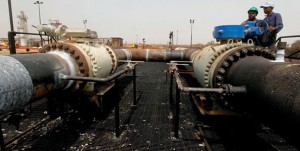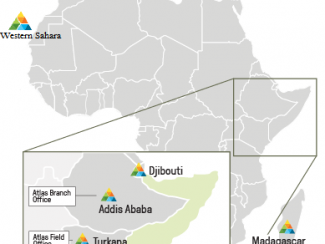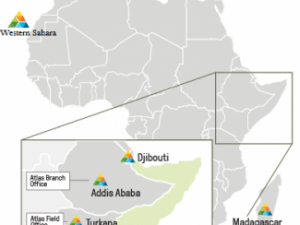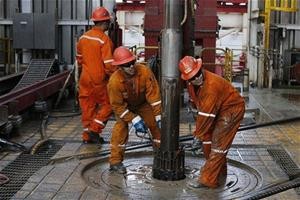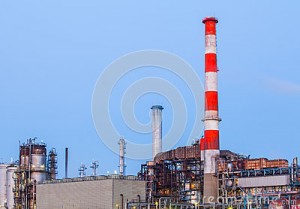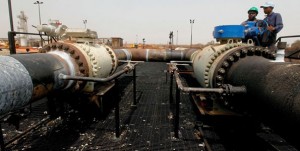
author, one of the leading research and consulting service providers for the oil and gas industry, recently published the “Tanzania Oil and Gas Strategic Analysis and Outlook to 2025”. The premier report provides analysis of key opportunities and associated challenges facing Tanzania oil and gas industry.
Amidst downfall in oil prices creating uncertainty on the future of Tanzania industry growth, the report details key strategies of government, oil and gas companies and investors in the country. Detailed outlook of the industry in terms of production forecasts of oil, gas, LNG, LPG, gasoline, diesel, fuel oil along with supporting parameters of primary energy demand, GDP and population are included.
Current status of planned projects along with the possible commencement of the projects, feasibility of developing those projects in current market conditions, expected start up, impact of competing assets in other countries and overall industry developments, investments required and other related information on planned projects is provided in detail.
The comprehensive guide provides analysis and forecasts of Tanzania oil and gas market for the period 2000 to 2025. Asset by asset details of all existing and planned projects across Tanzania oil and gas value chain are detailed in the report.
Driven by strong methodology and proprietary databases, reliable projections of oil, gas, petroleum products, coal, and LNG- supply and demand are made to 2025. The research work examines the existing infrastructure (oil and gas assets), market conditions, investment climate and competitive landscape of upstream, midstream and downstream sectors.
SWOT Analysis and benchmarking tools are used to analyze and compare the real prospects and challenges of investing or expanding in the industry. Further, the report details all the investment opportunities sector wise, highlighting the industry growth potential and project feasibility. Detailed information on new fields, blocks, pipelines, refineries, storage assets and LNG terminals along with the investments required, current status of the projects and commencement feasibility are provided.
The report also analyzes three key companies in Tanzania oil and gas industry. Business operations, SWOT Analysis and financial performance of the companies are provided. All latest developments in the industry along with their possible impact on the industry are included in the report.
Some of the Key issues addressed in the report include-
– How will be oil and gas supply scenario in Tanzania by 2025?
– Which of the petroleum products will witness the maximum demand growth by 2025?
– What are the new risks and opportunities for investors/ oil and gas companies?
– What are the potential investment opportunities in Tanzania and how much investment is needed?
– How did the production from major fields vary over the last decade?
– What is the current status of all planned projects in Tanzania?
– Who is the market leader and what is the market concentration ratio of pipelines, upstream, oil storage, refining, LNG and UGS sectors?
– What will be the coking/FCC/HCC/VDU capacities in the Tanzania by 2020?
– How much of the LNG capacity is contracted and how much will be available for contracts by 2020?
– What will be the crude oil/petroleum products/chemicals storage capacity by 2020?
– How much natural gas can be withdrawn from underground gas storage tanks in a day?
– How extensive is the pipeline transportation network in the country?
Scope
Coverage-
Across the value chain including Fields, blocks, pipelines, oil, products, chemicals storage, underground gas storage, refineries, LNG
Forecasts and Projections-
Crude oil, natural gas, LNG, petroleum products supply and demand: 2000- 2025
Market Analysis-
Primary energy scenario; SWOT Analysis; Benchmarking with peer markets; Drivers and challenges
Investment opportunities-
Information on investments, current status, routes, owners, construction contracts of Key planned pipelines, planned refineries, new units, expansions and upgrades, exploration blocks on offer, LNG terminals, expansions, new storage facilities
Asset wise Information-
– Oil and gas field details- production (2005-2012), location, operator, ownership
– Refineries- primary and secondary capacity outlook (2005-2020), refineries under operation and implementation (complexity, capacity, location, start up, operator, ownership), refinery expansions
– LNG – capacity outlook (2005- 2020), trade imports, utilization rates (2005- 2014), operational and planned terminals (location, start up, operator, ownership and capacity)
– Storage- oil and gas storage capacity outlook (2005-2020), tank farm details under operation and planned
– Pipeline- crude oil, petroleum product and natural gas pipelines under operation and planned
Competitive Landscape-
Market structure and share of top five companies in each of the oil and gas segments is provided;
Company wise oil, gas production from 2005- 2012 is provided
Net weighted refining, LNG and storage capacity information is provided for historic and forecasted period
Further, detailed business profiles of three leading oil and gas companies in the country are included, detailing their business overview, SWOT and financial analysis.
Latest industry Updates-
All latest industry updates along with their possible impact on the industry, players and investors are analyzed.
Reasons To Purchase
The multi-client market study is used by oil and gas companies, traders, constructors, equipment and service providers, investment, financial institutions and strategic decision makers.
It allows your company to –
– Identify potential opportunities and risks involved in operating and investing in the market
– Formulate effective growth and expansion strategies through reliable forecasts
– Gain clear understanding of market size, trends and challenges for each of the oil and gas segments
– Beat your competition with robust information on the industry
– Understand the operations, strategies of leading companies
– Keep updated with all the recent developments in the industry.
For more information visit:http://www.researchandmarkets.com/research/s6szlj/tanzania_oil_and
 Wentworth Resources which is an independent energy company with gas reserves and exploration potential in the Rovuma Basin of southern Tanzania and northern Mozambique has announced that Managing Director, Mr. Geoff Bury, will present a corporate overview at the FirstEnergy Global Energy Conference being held on Monday 21st and Tuesday 22nd September 2015. The conference is being held at the Intercontinental London Park Lane, Hamilton Place, London W1J 7QY.
Wentworth Resources which is an independent energy company with gas reserves and exploration potential in the Rovuma Basin of southern Tanzania and northern Mozambique has announced that Managing Director, Mr. Geoff Bury, will present a corporate overview at the FirstEnergy Global Energy Conference being held on Monday 21st and Tuesday 22nd September 2015. The conference is being held at the Intercontinental London Park Lane, Hamilton Place, London W1J 7QY.


